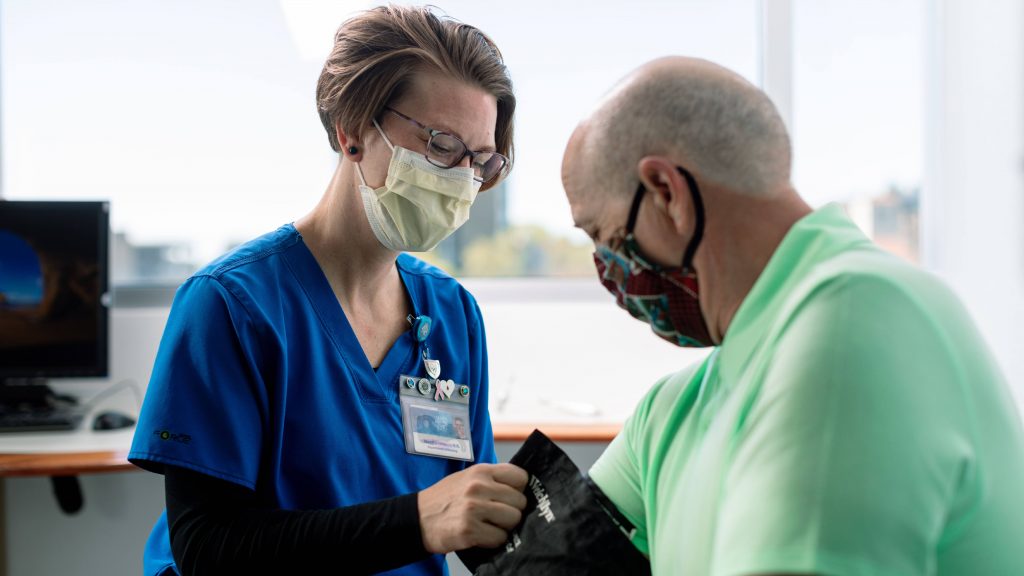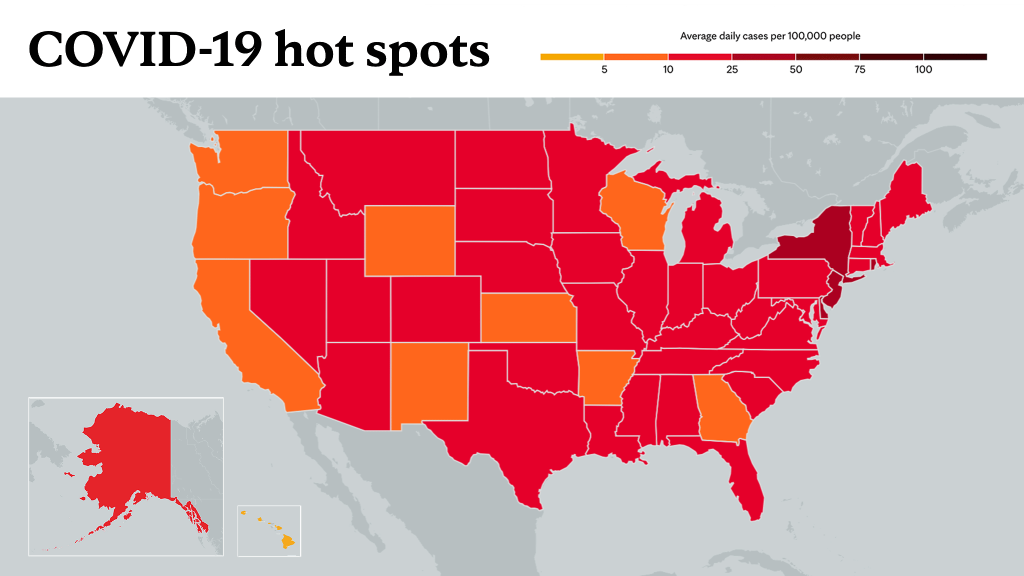-
Importance of preventive health care during COVID-19 pandemic

Preventive health care helps you maintain your health. Screenings are important to avoid future health problems or catch them early when they are easier to treat. But the COVID-19 pandemic has led to a decrease in preventive screenings because some patients have been hesitant to see their health care provider.
"People are driven to seek medical care by pain. Pain is a strong driver to get relief. And since prevention is when you are without symptoms, people tend to put that on the back burner or they may feel unsafe to come in because of the uncertainty about COVID-19," says Dr. Cindy Kermott, a Mayo Clinic preventive medicine physician. "We know enough now about COVID-19, and we have personal protective equipment. We also have vaccines that have been available for health care workers now, and essentially all have been offered it. And it is safe to come in to get these preventive screens and vaccines done."
Watch: Dr. Cindy Kermott discusses the importance of preventive health care.
Journalists: Broadcast-quality sound bites with Dr. Kermott are available in the downloads at the end of the post. Please courtesy: "Cindy Kermott, M.D./Preventive Medicine/Mayo Clinic."
The U.S. Preventive Services Task Force recommends many evidence-based preventive screenings. The most common for older men are prostate cancer and abdominal aortic aneurysm screenings. Women should schedule Pap smears to check for cervical cancer and mammograms to detect breast cancer.
Other important preventive health measures for every adult include:
- Vaccinations
- Colorectal cancer screening
- Checking cholesterol levels
- Blood pressure screening
- Testing blood glucose levels for diabetes
The timing and frequency of these screenings depend on your age and risk factors, and most are covered by your insurance.
"A screen is just a tool to detect the disease earlier," says Dr. Kermott. "It could be a lab. It could be vital signs. It could be questions — a survey instrument for depression, for example. It could be taking a family history and finding clues for genetics because some genetic testing is covered as a screen. And sometimes we do imaging, such as bone density or colonoscopy and endoscopy to detect things."
Whether you're nervous about COVID-19 safety or simply putting off your next trip for care, don't delay in talking to your health care provider about scheduling your preventive health screenings.
"If we pick it up too late, then we don't have as good of a leg up on the situation. And we're hoping to intervene so that you can live longer and have more quality life years as a result of these screens," says Dr. Kermott.
_______________________________
For the safety of its patients, staff and visitors, Mayo Clinic has strict masking policies in place. Anyone shown without a mask was either recorded prior to COVID-19 or recorded in a nonpatient care area where social distancing and other safety protocols were followed.
For more information and all your COVID-19 coverage, go to the Mayo Clinic News Network and mayoclinic.org.
Learn more about tracking COVID-19 and COVID-19 trends.








